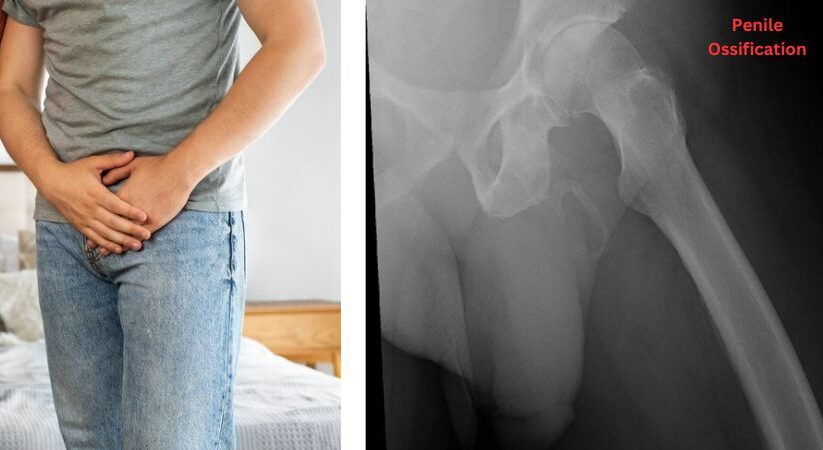Penile Ossification – A Rare Condition Found in a 63-Year-Old Man

Do you know about the rare condition found in men, penile ossification? This condition’s unusual nature perplexs not just the patients but also the doctors. Recently a newly discovered case of this disease in a 63-year-old man gained popularity on social media platforms. Many reels and short videos narrate this case. Hence, today in this blog we will learn what penile ossification condition is, its symptoms, causes, diagnosis, and treatments, and what the World Health Organization Says about it. Finally, lastly, we will read about the newly found case through our sexologist in Delhi.
What is Penile Ossification?
Penile ossification is an abnormal formation of bone tissue within the penis. The soft tissue of the penis transforms into a rigid and calcified structure. This condition occurs often due to chronic conditions such as trauma or Peyronie’s disease.

Causes of this Condition
The exact cause of this condition varies depending on the individual, however, there are still some factors that can contribute to it.
- Peyronie’s Disease – This disease can be a cause of penile ossification. Peyronie’s disease occurs by fibrous scar tissue in the penis, in rare cases the scarring can calcify and ossify.
- Trauma or Injury – Repeated injury to the penis can lead to chronic inflammation which can calcify and ossify.
- Chronic Inflammatory Conditions – Chronic inflammatory diseases such as diabetes, gout, etc. These conditions can increase the likelihood of tissue calcification.
- Rare Disorders – There are certain genetic conditions such as fibrodysplasia ossificans progressiva, which can cause widespread ossification in the soft tissue.
Symptoms
- Pain or discomfort during sexual activities.
- Difficulty maintaining or achieving an erection.
- Potential curvature or deformity.
- Hard areas within the penile shaft that feel like a bone.
Diagnosing & Treatment Options of this Condition
To diagnose this rare disease sexologists use a combination of clinical evaluations such as physical examination, X-ray, ultrasounds, MRI scans, and histological analysis.
The treatment options for this rare condition are only two, surgical and non-surgical. In the non-surgical treatment option, doctors manage the disease by addressing the underlying cause and then managing that cause; pain management and physical therapy are also used in mild cases.
The surgical options for this rare condition come in severe cases to remove ossified tissue. Penile prosthetic implants are suggested if ossification compromises erectile function.
What World Health Organization Says About Penile Ossification?
World Health Organization (WHO) has uploaded a pdf on the internet for everyone to read and learn what this disease is and how many cases have occurred of it. This is what they say about penile ossification:
“Ossification in the human penis is a rare condition and very few cases have previously been reported. Among several conditions that have been correlated with this problem the most frequent is Peyronie’s disease. Other causes include trauma, end-stage renal disease, syphilis, gonorrhea, and metabolic disorders like gout and diabetes. In all these conditions, human penile ossification appears to be a metaplastic bone formation process.”
On the WHO website, you can search for this disease and gain more information.
Newly Found Case of this Disease
The newly found case of this disease came in 2019 when a 63-year-old from New York City was diagnosed with penile ossification.
The man came for medical help after an incident of falling and experiencing knee pain since then. When the doctors ran a pelvic X-ray to rule out any fractures, they discovered extensive calcification in the penile tissues.
The patient didn’t go through the treatment and left the hospital.
How Likely Are You to Get Penile Ossification
It’s very rare for anyone to be diagnosed with penile ossification. Till now only fewer than 40 cases have been documented globally. Hence, the chance of you to get this condition is rarely any.
However, you should go through a proper diagnosis to make sure you are not struggling with this condition. Our sexologist doctor in Delhi, Dr PK Gupta can help you go through the screening process to diagnose it. Moreover, if you are struggling with pain or discomfort in the penis then you must seek help.









